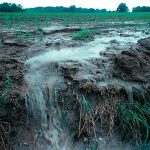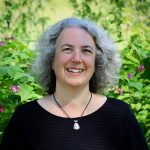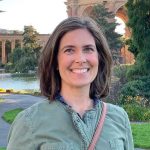Welcome to Monitor Notes, a weekly roundup of news items, event announcements, and updates on past Bay Area Monitor articles.
All-Inclusive Parks

Conservation projects — parks, open space, urban forestry, and ecological reserves — may be contributing to “green gentrification,” a process that can lead to housing price increases and push out low-income residents. This is concerning because green gentrification can displace longtime residents that many park equity efforts are designed to serve, according to researchers Alessandro Rigolon (pictured) and Jon Christensen. They’ll discuss results from their study, Greening Without Gentrification: Parks-Related Anti-Displacement Strategies Nationwide, during a Thursday, June 25 noon webinar hosted by the California Coastal Conservancy. To ensure parks projects benefit the intended communities, policymakers, planners, and other community organizations are considering strategies such as rent control or inclusionary zoning, among many other approaches. Click here to register.
Spreading Solutions

Nonpoint source pollution is created when runoff picks up pesticides, sediment, or other pollutants from sources like agriculture and transports them into lakes or rivers. Ways to reduce this pollution over the next five years is the subject of a draft implementation plan by the State Water Resources Control Board, Regional Water Quality Control Boards, and the Coastal Commission that’s open for public comment until July 13. Agencies are asking for feedback about water quality topics, goals, and objectives, and the targeted bodies of water upon which they’ll focus efforts. While the plan doesn’t contain binding or regulatory requirements for any state entity, it can influence how resources are allocated — grant funds and staff time — to water quality problems and areas of the state. Submit a comment.
Recovering from COVID-19

During the COVID-19 crisis, community leaders are not only grappling with the health impacts, but also face climate and inequality issues compounded by the current situation. How should these matters be addressed as communities seek to recover? Many ideas were shared during a May 28 webinar hosted by the League of Women Voters of Diablo Valley and other Contra Costa county organizations. Panelists (including Climate Interactive co-director Beth Sawin, pictured) highlighted the need for transformative ideas to help the county — which is moving forward with its reopening plans — achieve a healthier, equitable future. That includes targeting “multi-solving” solutions that use one investment in dollars, time, and political capital to weatherize a home, for example, which can also aid in energy efficiency savings, job creation, and greenhouse gas emissions reduction.
No Parking Zone

Parking can have a ripple effect on housing supply and cost, the environment, as well as the walkability of a city. A June 5 Greenbelt Alliance webinar moderated by Sarah Cardona (pictured), the organization’s director of climate policy and advocacy, convened panelists representing city and advocacy viewpoints to unearth these outcomes and share why they think modernizing parking requirements is important. This includes the City of San Jose, which told the Bay Area Monitor about changes it’s considering like on-street pricing and a transportation demand management plan. In fact, the COVID-19 economic and health crises are challenging many cities to rethink parking and its use as public space, although concerns are increasing that car reliance is competing for that space again as cities reopen. Park here for a replay of the Greenbelt Alliance webinar.
Monitor Notes is produced by Cecily O’Connor. To receive it by email, scroll to the bottom of this page, enter your email address in the box under “RECEIVE EMAIL UPDATES,” and click the red “SIGN UP” button.